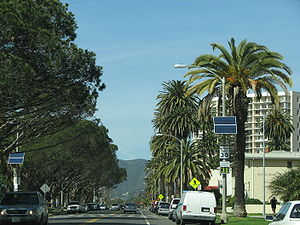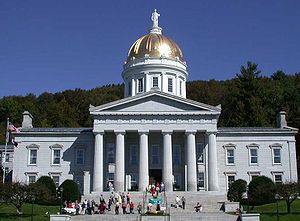Technically I agree with Mr. William’s assertion that broadband services (Internet access and video services) are not a necessity…currently. Sending and receiving e-mail or posting the satisfaction of your latest latté are not necessities nor are they guaranteed in our Constitution. Then again neither is health care, but it now considered a human right so the current administration saw it fit to make sure that every citizen has it.
Electricity was not considered a necessity at the beginning of the twentieth century, but many communities saw its utility to stimulate their economy. Now electricity IS a necessity because there are several life-sustaining devices that require electricity to operate. Citizens subsidize the rates of the poor and elderly to provide them electricity. Telephone service suffered the same fate. It transformed from being a luxury to a matter of public safety; thus, the Universal Service Fund.
Now we are undergoing the same debate on broadband services. We are at the point on the adoption curve where it is going beyond a toy for nerds and geeks to playing a vital role in the economic vitality of a community. The economic and social benefits of broadband services are well documented which bring it beyond the point of being called a luxury for the rich. Communities should decide on the local level whether they would like to expend funds to build a broadband network if they feel that the incumbent service providers are not doing a satisfactory job. Remember that much like water, roads, sewer, and electricity, the market for broadband services is not typically competitive in most communities. There are typically one or two different service providers in a community.
Many communities are struggling to keep businesses and citizens in their community. They seek ways to drive economic activity and a good broadband network is one way to accomplish that goal. The most successful communities in this endeavor are not actually providing services, but offer open-access to any service provider that wants to sell services in their community. The service provider purchases access from the municipality which supports the operation, maintenance, and growth of the networks. Some communities are even seeing a net positive flow into their general fund; therefore, building a broadband network can be done without wasteful government spending. Before you know it, broadband networks will be necessity for the health, eduction, and safety of its citizens.
BroadbandBreakfast.com Staff, BroadbandBreakfast.com
WASHINGTON, July 29, 2010 – Speaking in a webcast by the Broadband Policy Series this afternoon, David Williams of Citizens Against Public Waste said that there “wouldn’t be any circumstances in which government should step in” where community broadband is concerned. According to Williams, even when local governments step in, there tends to be a centralizing process by which one locality wants the same services as another locality, thus evolving the process to a Federal level.





![Key Players [SB10001424052748703977004575392593925589942]](https://inphotonicsresearch.com/wp-content/uploads/2010/08/OB-JJ718_ozplay_D_20100728004250.jpg)


